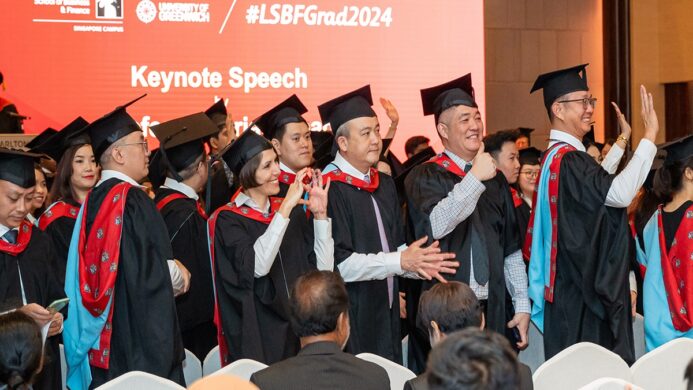CILACAP.INFO – Pursuing a master’s degree is a significant decision, both academically and financially. With Singapore emerging as a global education hub, many students consider whether investing a master’s degree in Singapore is worth the cost.
Let’s break down the financial aspects of pursuing a master’s degree in Singapore and the potential values it offers.
What is the General Cost of a Master’s Degree in Singapore?
The cost of a master’s degree in Singapore depends on the institution, programme, and whether you’re a local or international student. Typically, tuition fees range between SGD 18,000 to SGD 20,000. However, specialised programmes like an MBA or engineering courses can cost more, sometimes up to SGD 25,000 in some cases.
What are the Additional Living Expenses in Singapore?
Beyond tuition fees, students must also consider the cost of living in Singapore. As one of the most develop
ed cities in Asia, Singapore has a relatively high cost of living. Monthly expenses can include accommodation, food, transportation and personal needs. Here’s an estimate of typical monthly costs:
- Accommodation: SGD 800 to SGD 2,000, depending on whether you stay in a dormitory, shared apartment, or private rental.
- Food: SGD 300 to SGD 600, based on whether you cook at home or eat out.
- Transportation: SGD 100 to SGD 150, for public transport
- Miscellaneous: SGD 200 to SGD 400, covering entertainment, healthcare, and other personal expenses.
Overall, the monthly cost of living in Singapore can range from SGD 1,400 to SGD 3,000, depending on lifestyle choices. Students should budget at least SGD 15,000 to SGD 30,000, annually for living expenses in addition to their tuition fees.
What are the Benefits of Pursuing a Master’s Degree in Singapore?
While the cost of studying and living in Singapore may seem a bit high, the potential value of a master’s degree in Singapore can be valuable.
Singapore’s strategic position as a global business hub also offers numerous networking opportunities, internships, and job prospects. Multinational companies in finance, technology, logistics, and more have regional headquarters in Singapore, making it easier for graduates to land high-paying jobs.
Moreover, the Singaporean government offers various employment schemes and passes, such as the Employment Pass, to retain skilled foreign talent. Graduates from local universities often have an advantage in securing these opportunities, giving them access to the country’s robust job market.
Weighing Cost vs. Value: Is It Worth It?
The decision to pursue a master’s degree in Singapore ultimately depends on an individual’s goals. For students looking for high-quality education, global exposure, and enhanced career opportunities, the investment can be worthwhile.
Singapore’s focus on research, innovation, and industry partnerships ensures that graduates gain relevant, up-to-date skills. For instance, graduates with an MBA in Singapore can expect salaries ranging from SGD 86,000 and SGD 94,000 annually, with higher earning potential in leadership roles with an average salary of SGD 173,000/year, as per Glassdoor.
On the flip side, if finances are a concern, students should carefully consider the return on investment. Programmes with clear career pathways, such as business administration, information technology, or engineering, often offer a better return in terms of salaries and job placements.
Researching potential salaries in your field post-graduation is essential in determining if the investment will pay off. Ultimately, careful financial planning and a clear understanding of you career goals will help determine if pursuing a master’s degree in Singapore is worth it for you.
Enroll in a master’s degree in Singapore today and shape your future career!


